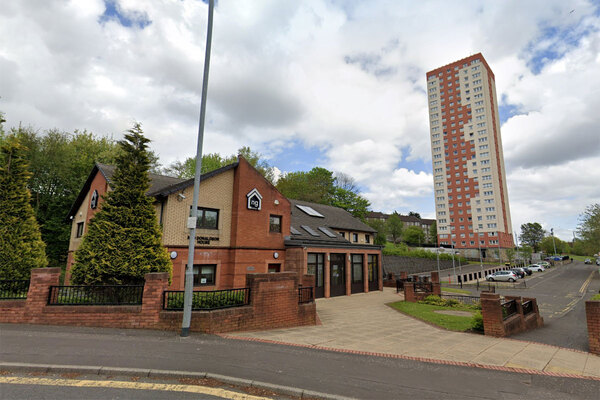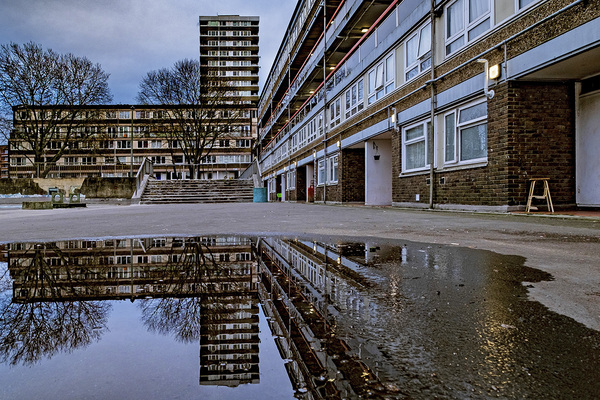You are viewing 1 of your 1 free articles
 Gemma Duggan
Gemma DugganFour ideas to change the stories of those in poverty
Beyond affordability of rent, there are lots of things housing providers can do to tackle poverty. Gemma Duggan suggests four ideas.
There is a Maori proverb... “Heaha te mea nui o tea o? He tangata! He tangata! He tangata!” which means: “What is the most important thing in the world? It is people! It is people! It is people!”.
Statistics may enable us to identify patterns, impacts and solutions to housing-related poverty but it’s the people that need support and not the statistics.
Therefore, people’s housing stories are just as compelling as spreadsheets and databases in understanding solutions to poverty.
That is what is powerful about the research recently launched by the Joseph Rowntree Foundation (JFR) and Centre for Housing Policy and written by Altair on poverty and people housing experience over their lives.
While patterns are identified, they are meta-stories of the compelling individual stories of those interviewed over an 18 month period.
“People’s housing stories are just as compelling as spreadsheets and databases in understanding solutions to poverty.”
These show that good and stable housing can mitigate poverty, but that current housing and the linked welfare systems respond poorly to life events. There are limited options for younger people which provide no ladder or hope of better housing prospects in later life.
Social rented housing, at its best, provides a secure tenancy in decent housing at an affordable rent.
But its potential is undermined by lack of supply, some poor neighbourhoods and properties which are let in a poor state of repair.
For those on low incomes who are only able to access the lower end of the private rented sector, their ability to create a home is undermined by high housing costs, poor quality housing and the precariousness of tenancies.
The individual stories tell of people getting into thousands of pounds of debt by decorating and furnishing a social rented home.
Those stories tell of single people still at home or in crowded conditions because there is no social housing option for them.
They tell of people locked out of the private rented sector due to the costs of deposits and how good or bad advice can have a huge impact on an individuals housing prospect.
So how do we change these people’s stories?
The research demonstrates that housing issues for those in poverty go well beyond whether they can access a secure home that is affordable on a monthly basis – although providing more of these would be an excellent place to start.
Beyond affordability of rents or mortgages, there are measures that housing providers, local authorities, charities and government could be taking to tackle housing related poverty.
In fact, working with all these groups, Altair came up with 42 ideas that could be implemented relatively quickly and would enable our housing system to create positive housing stories for those in poverty.
Out of those 42 the JRF shortlisted four for Altair to explore in detail. These four were:
House to Home – We proposed that floor coverings and basic decoration should come as standard with all social housing properties.
Tenants should also be given access to affordable furniture packages.
Making a social house a home would reduce the risk of low income tenants getting into unsustainable levels of debt or going without basic goods such as a fridge or a bed. It may also reduce eviction rates, reduce refusals of properties and create a more positive relationship between tenant and social landlord.
Housing Advice Service (HAS) – We proposed that a consistent, comprehensive HAS should be established across England, Wales and Scotland (it is already in place in Northern Ireland).
This service should be tenure and need neutral. It should be website based initially, with the options of phone or online chat advice via a triage system. This would help those who are struggling with housing costs to understand their options, ensure the best use of their housing resources and reduce the risk of homelessness or need for temporary accommodation.
Social Sharing – We proposed that social landlords should expand their provision of shared accommodation, as the social sector has little to offer young and single people currently.
It should be delivered through the conversion of existing homes for small numbers of sharers.
It would tackle the lack of affordable housing options for young and single people, reduce homelessness and give young and single people more stability than the private sector can provide.
Access to Rent – We proposed that the government should create a deposit loan scheme. Through this scheme, the government would provide dedicated financing, based on government borrowing rates, to existing bodies that would provide affordable and fair loans to those on low incomes.
Agencies likely to administer the scheme would include local authorities, credit unions or other social lenders.
This proposal would enable low-income households to better afford the up-front costs of a security deposit. This often represents a significant barrier to accessing the private rental sector and limiting their ability to adapt their housing to life changes.
Altair explored these proposals with stakeholders, developed them into detailed and costed proposals. So what are you waiting for?
Housing providers and governments need to think beyond what they can do to improve the statistics related to housing – they need to ensure it is also improving people’s stories. A good, stable home has the power to change lives. These four solutions that will do just that.
Gemma Duggan, principle consultant, Altair











